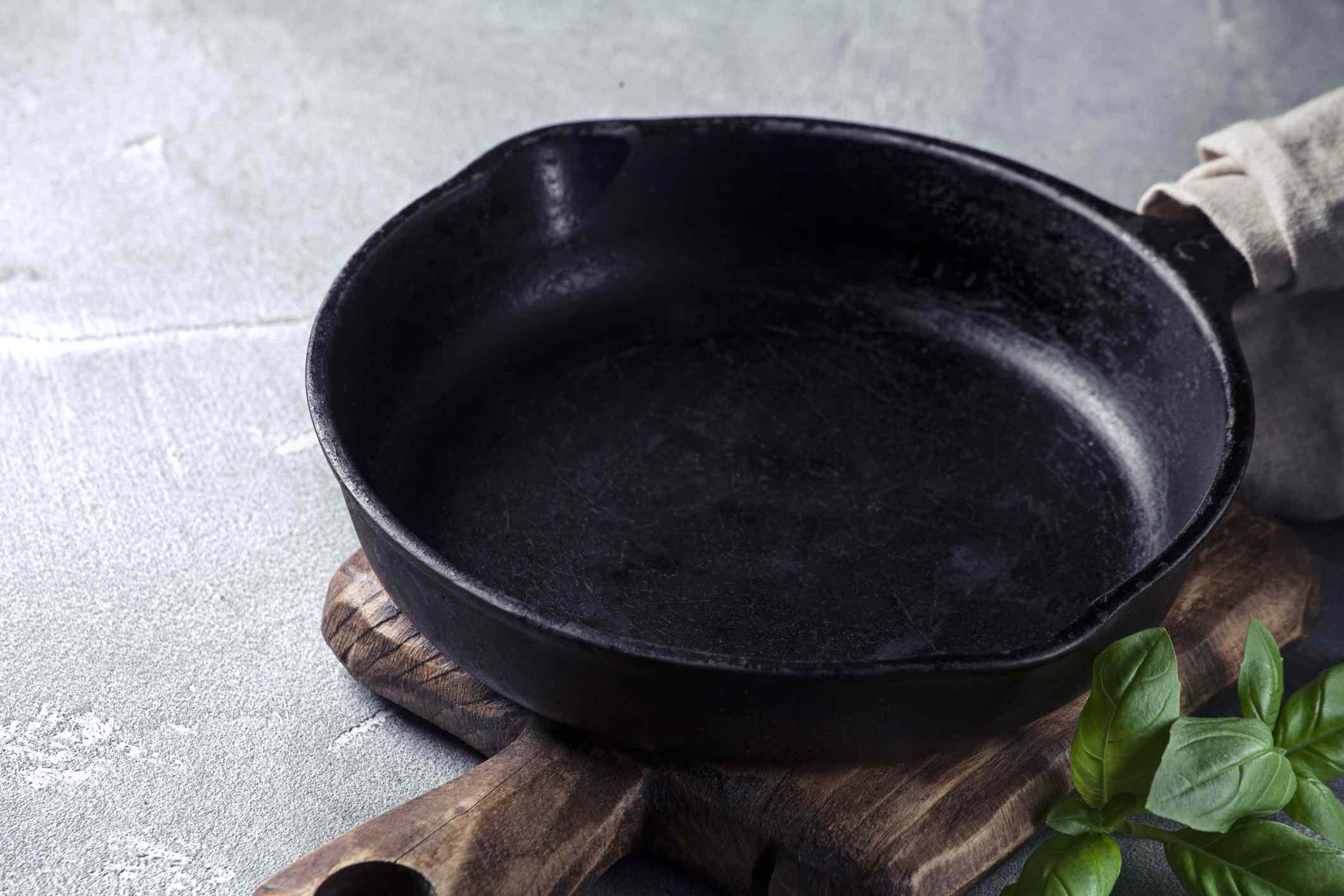Featured
- Get link
- X
- Other Apps
How to Restore Your Cast Iron: Banish Rust for Good!
Make your cast iron look good as new with a few household staples.

A cast iron skillet is a kitchen essential for numerous families. Nonetheless, cast iron cookware can quickly tarnish and accumulate rust if not used and cared for properly. Often, the cause of a rusty cast iron is too much moisture and not enough seasoning built up on the pan.
You can bring your rusty cast iron back to mint condition using some muscle power and common household items. Discover how to remove rust from cast iron with these proven techniques.
Method 1: Clean Using Steel Wool
This method is the first line of defense when you see rust starting to creep onto your cast iron skillet.
- Wipe away the rust using steel wool.
- Wash the pan in warm, soapy water.
- Wipe the pan completely dry using a lint-free cloth.
- Re-season the cast iron.
Tip
If you don’t have steel wool on hand, aluminum foil also works in a pinch!
How to Re-Season Cast Iron After the Rust Is Gone
You’ll need to re-season your cast iron after removing the rust to build up the pan’s protection. To do so, cover your cast iron in a thin layer of cooking oil using a paper towel. Then, bake the pan upside down in an oven at 350 degrees Fahrenheit for one hour.
If your cast iron has particularly tough spots, try one of the following methods to break down the rust.
Interested in additional cleaning and organization tips? Subscribe to our free newsletter now! daily newsletter for the latest hacks, expert advice, and more!
Method 2: Soak In Vinegar
- Pour an equal amount of liquid into a bucket or sink. white vinegar and warm water.
- Immerse the cast iron in the vinegar solution for 30-60 minutes, or until the rust begins to peel away.
- Take the pan out of the vinegar solution and use steel wool to scour the rusty areas until they're gone.
- Wash the pan out with water and then dry it using a cloth without lint.
- Re-season the pan.
Tip
Although the usual advice is to refrain from soaking a cast iron pan, you can safely soak it briefly in a mixture of vinegar and water as this process effectively eliminates rust and strips away any residual seasoning. However, be sure to reseason it afterward to restore the protective coating.
Method 3: Create a Baking Soda Mixture
- In a small bowl, combine baking soda Using water to form a paste.
- Apply the paste to the pan’s rusted areas. Scrub with steel wool or cast iron brush.
- Wash the cast iron with water to eliminate the baking soda residue and ensure it’s completely dried using a lint-free cloth.
- Re-season the pan.
Technique 4: Utilize Coarse Salt
- Add 2 to 3 tablespoons of coarse Kosher salt to your cast iron skillet.
- Use a wet paper towel, half a potato, or half a lemon to rub the salt in circular movements across the pan, applying additional force on rusty areas. Keep adding salt and scrubbing until every trace of rust has been removed.
- Wash the pan completely using water and then dry it with a cloth free of lint.
- Re-season the pan.
Tip
Ensure you're using coarse salt for this technique instead of fine table salt. The coarseness of the salt is necessary to effectively scrub away and eliminate the rust.
How to Clean Cast Iron Pans Post-Cooking
To keep your cast iron cookware in good condition, make sure you clean it thoroughly right away every time you use it.
- Once the pan is still warm, use a paper towel to wipe away any leftover food particles. Should any food be stubbornly adhered, initially soften it by applying lukewarm water on the stovetop at medium heat.
- Clean using a cloth, lukewarm water, and a small quantity of dish detergent.
- Thoroughly wash with lukewarm water and then dry completely using a non-linting cloth.
Ways to Prevent Cast Iron from Rusting
Although you can eliminate rust from your cast iron cookware, prevention is preferable. Adhere to these guidelines to maintain your cast iron in excellent, rust-free shape:
- Avoid soaking cast iron . Minimize water contact with your pan as much as you can.
- Clean it correctly. Wipe clean right away after usage and try not to use an excessive amount of dish soap during cleaning.
- Keep the pan dry. Following the wash, use a lint-free cloth to dry it off. Optionally, you could place the pan on the stove at a low temperature for several minutes to eliminate any leftover dampness.
- Oil after each use. Once the pan is dry, apply a light layer of cooking oil to the pan. This builds up layers of seasoning to protect the pan from rust.
- Avoid acidic foods. Highly acidic foods, like tomatoes and vinegar, can eat away at the skillet’s seasoning. Ensure your pan has multiple layers of seasoning before cooking recipes that contain acidic foods.
- Use it often. The more cast iron cookware is used, the better it cooks. Cook with it regularly to keep up the protective oil layer and prevent rust.
- Store in a dry place. Avoid keeping your cast iron in areas with high humidity, such as the basement.
Read the original article on The Spruce
- Get link
- X
- Other Apps
Popular Posts
ABC Apologizes After Claudia Long Fabricates False Claims About Two High-Profile Politicians
- Get link
- X
- Other Apps
Oyetola Names Adeniran Aderogba New President/CEO of RMDB – Exclusive International Update
- Get link
- X
- Other Apps
Comments
Post a Comment